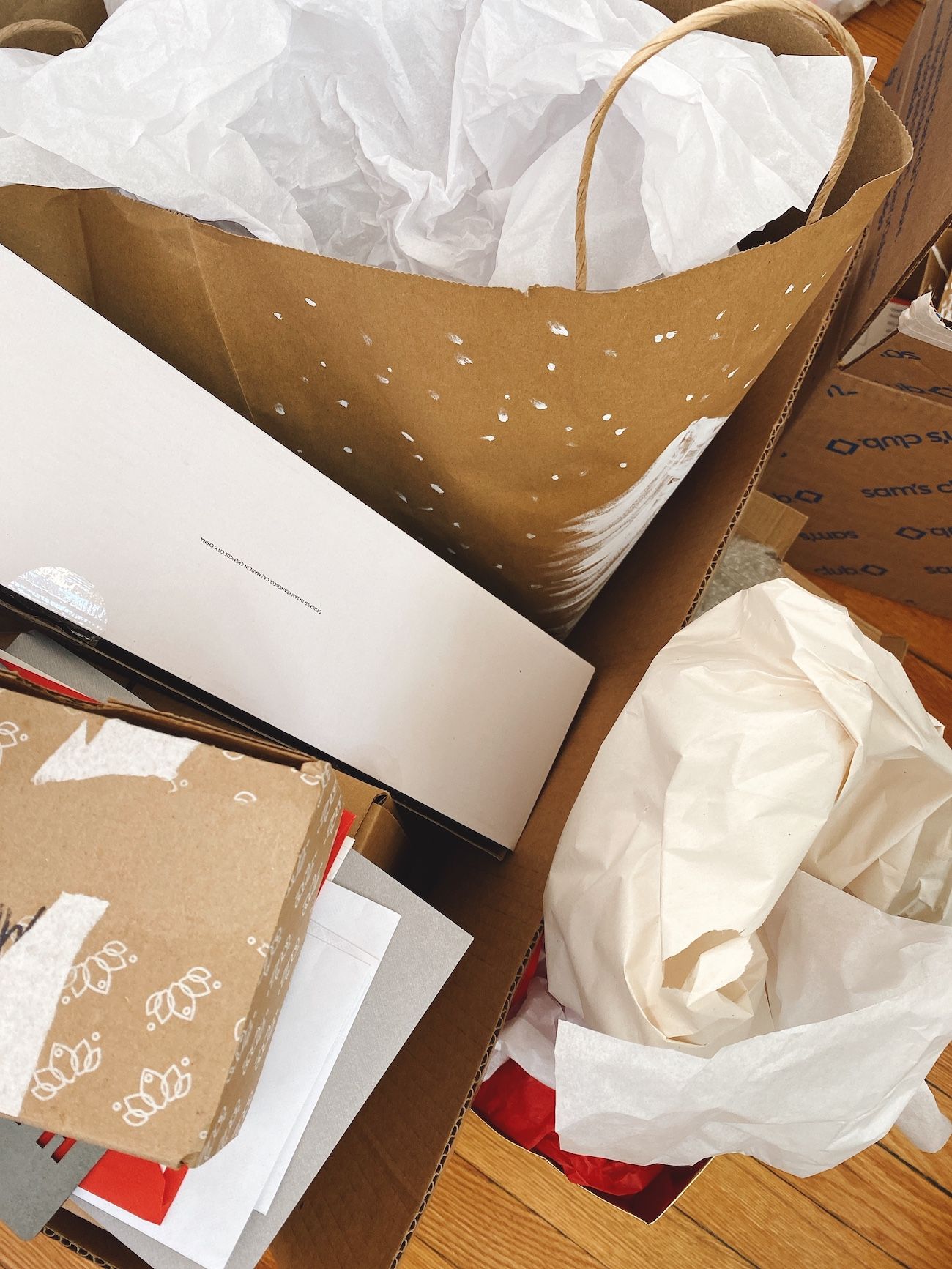United States of Myopia
We see it practically everywhere we look.
Ads popping up on our computers and social media accounts. People we follow are frequently posting updates on the new clothes they're wearing, the new international vacation they're taking this year, or their cup of coffee in a non-reusable cup.
Our culture is dependent upon consumerism. And with consumerism comes consumer waste.
In the US alone, an extra 1 MILLION tons of waste a week is sent to landfills just from Thanksgiving to New Year's Day, generating 25% more waste during the holiday seasons.

This also relates to how consumerism is responsible for 60-70% of all carbon emissions (direct and indirect emissions), greatly impacting our environment. In this me-centered consumer culture, we constantly update our current items for the latest and greatest versions, chasing after a consumer "high" that dissipates within minutes (the emotion is linked to the act of buying a product, not the product itself).
In the film The Story of Stuff, it's reported that only ONE PERCENT of "stuff" is still used six months after its purchase. Manufacturers are aware of our short-sighted purchases and make products that may be lower quality to make the products more affordable for people to purchase. As the quality of the product is lowered, its longevity similarly decreases.
Even though the current culture of consumerism appears greatly detrimental to the environment (and in turn, to ourselves), a consumer-based culture could be the answer to drive environmental change.
Companies are starting to refocus their attention and ways of producing items that are better for the environment and humanity. Several companies are re-selling their (sometimes gently-used) products at a discounted price, keeping products out of the landfill and at a cost that consumers can get behind.

So, what are some ways you can help drive a conscious consumer culture?
Be mindful of the products you're purchasing: Do you actually need a newer product? Can you purchase a used version of the product?
Get to know the company: How are the materials manufactured or produced? What are their ethics/policies regarding fair trade, employee rights, environmental impact, etc? You can usually find this information on the company's website.
Recycle the packaging your products and "stuff" come in: That includes all those Amazon boxes and other plastic bags that can be returned at Store Drop-offs - commonly seen in front of grocery stores
Inform others to help them increase their awareness of their consumption: Encourage your friends, family, and followers to be more mindful of their purchases.
We can turn our me-centered culture to a more sustainable and healthy us-centered culture. Let's use our platforms and influence to take the eyes off ourselves and look around us to address the needs of others and our shared home.
What are ways you plan to be more aware and mindful of your consumerism? Do you currently implement a mindful consumer approach to your purchases? Comment below!
Featured in the picture of me: Discounted shoes from Everlane, denim at least 5 years old, and a hand-me-down sweater that's at probably from the 1980s or 90s.
for the love of the world + all on it. x o, rachel
Sources:
https://news.climate.columbia.edu/2020/12/16/buying-stuff-drives-climate-change/
https://newrepublic.com/article/154147/climate-change-symptom-consumer-culture-disease
https://www.npr.org/2021/11/30/1060185929/what-s-the-environmental-impact-each-time-we-hit-buy-now-and-can-we-change-cours
https://www.ecowatch.com/consumerism-climate-crisis-2650399987.html
